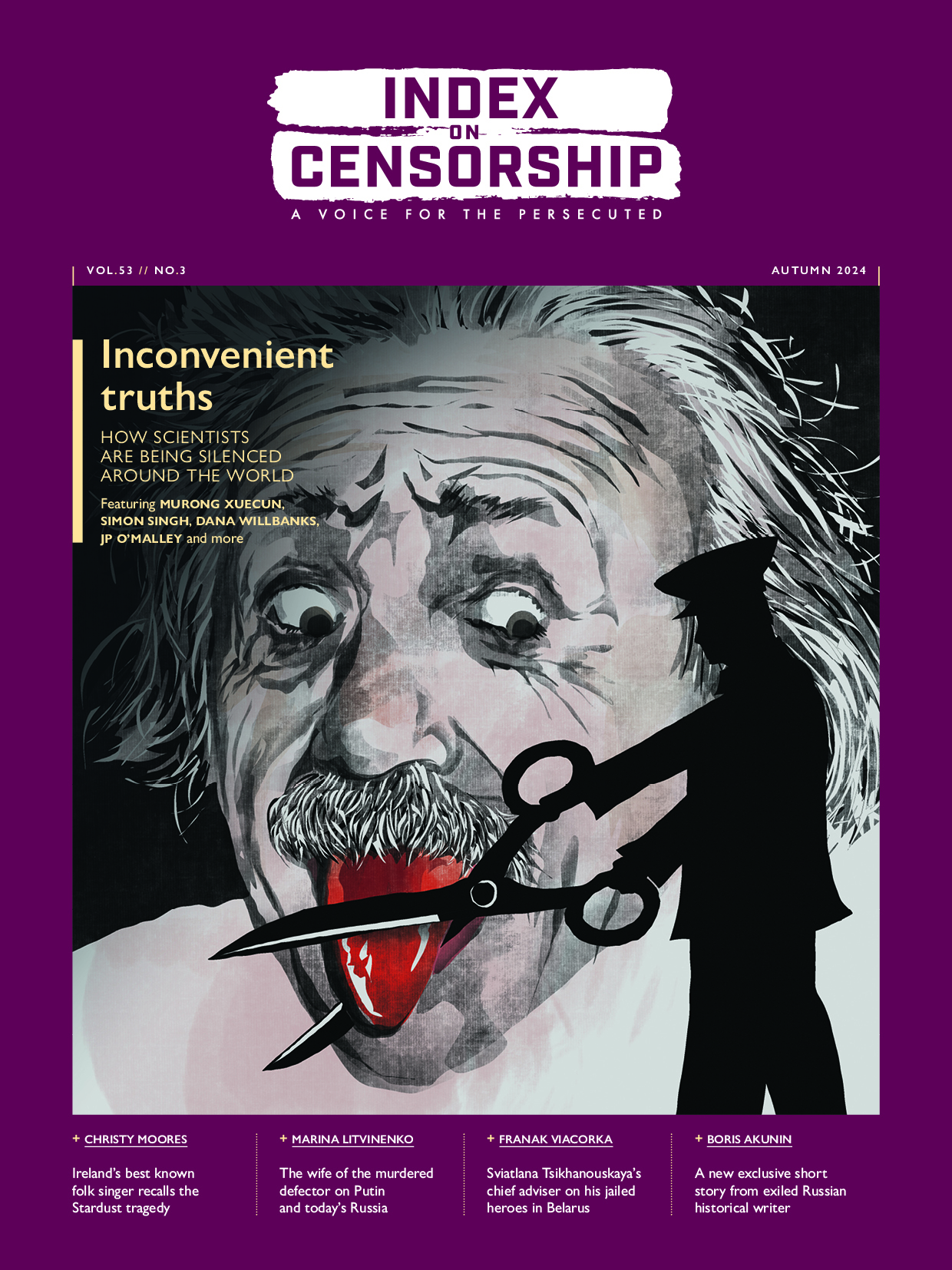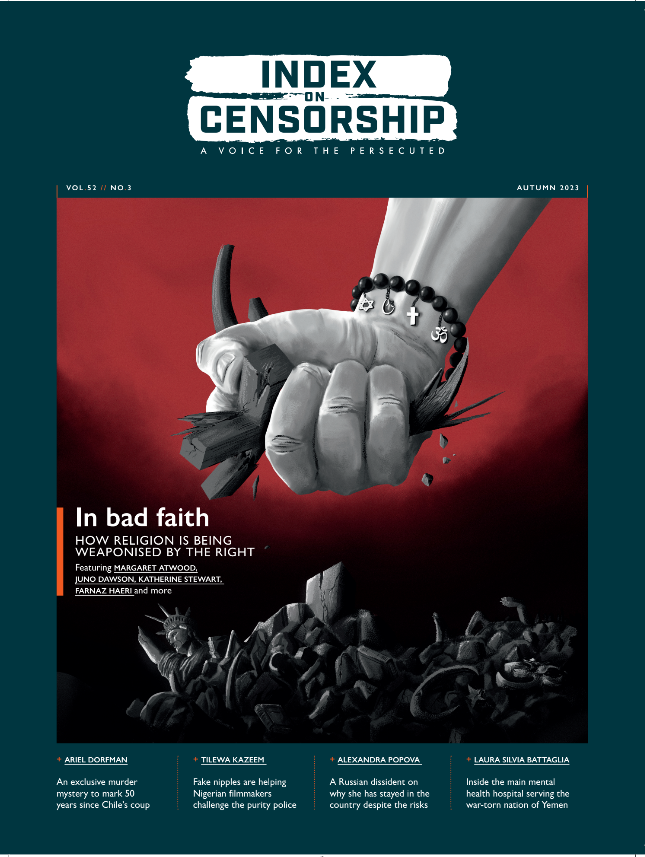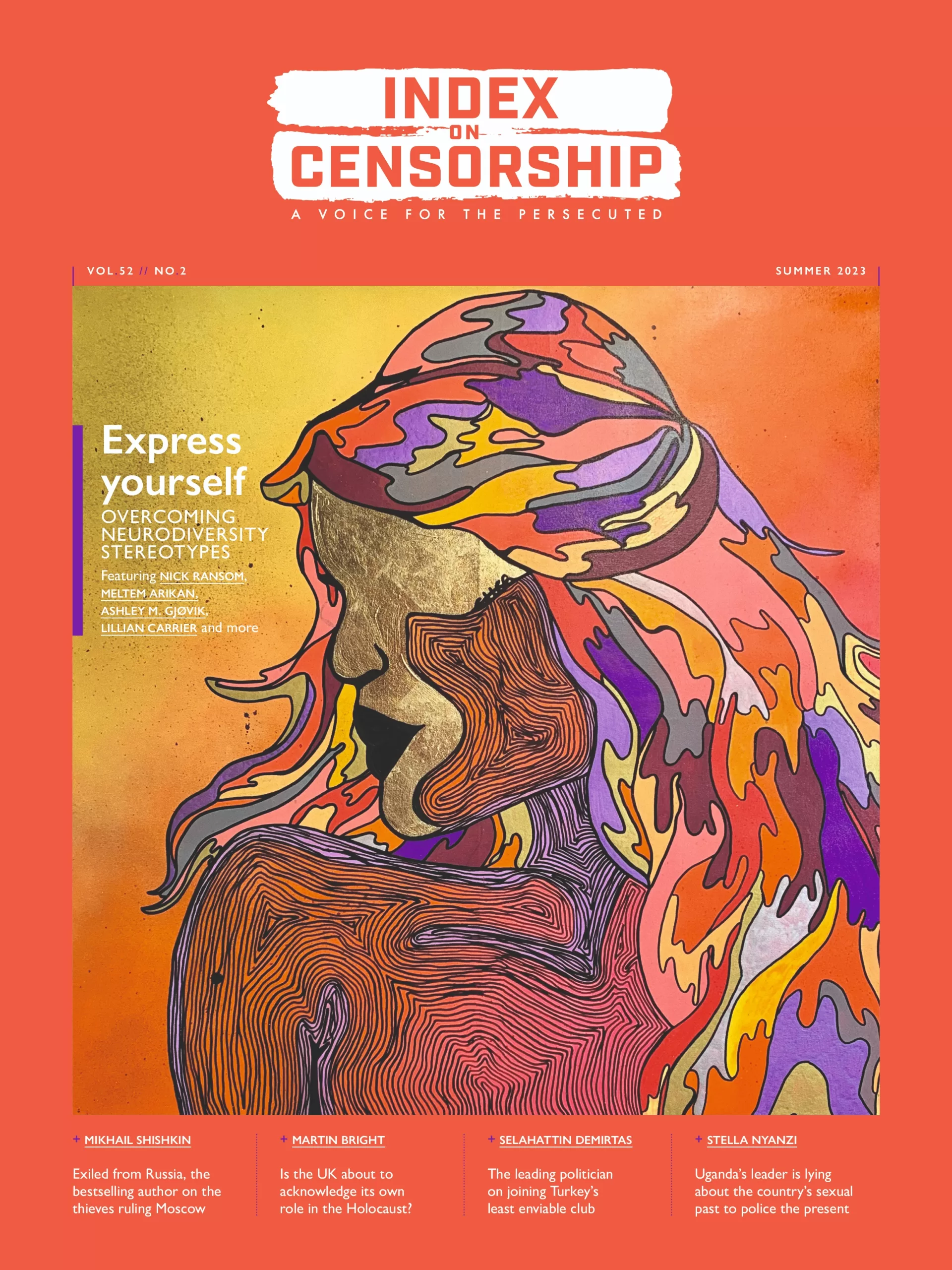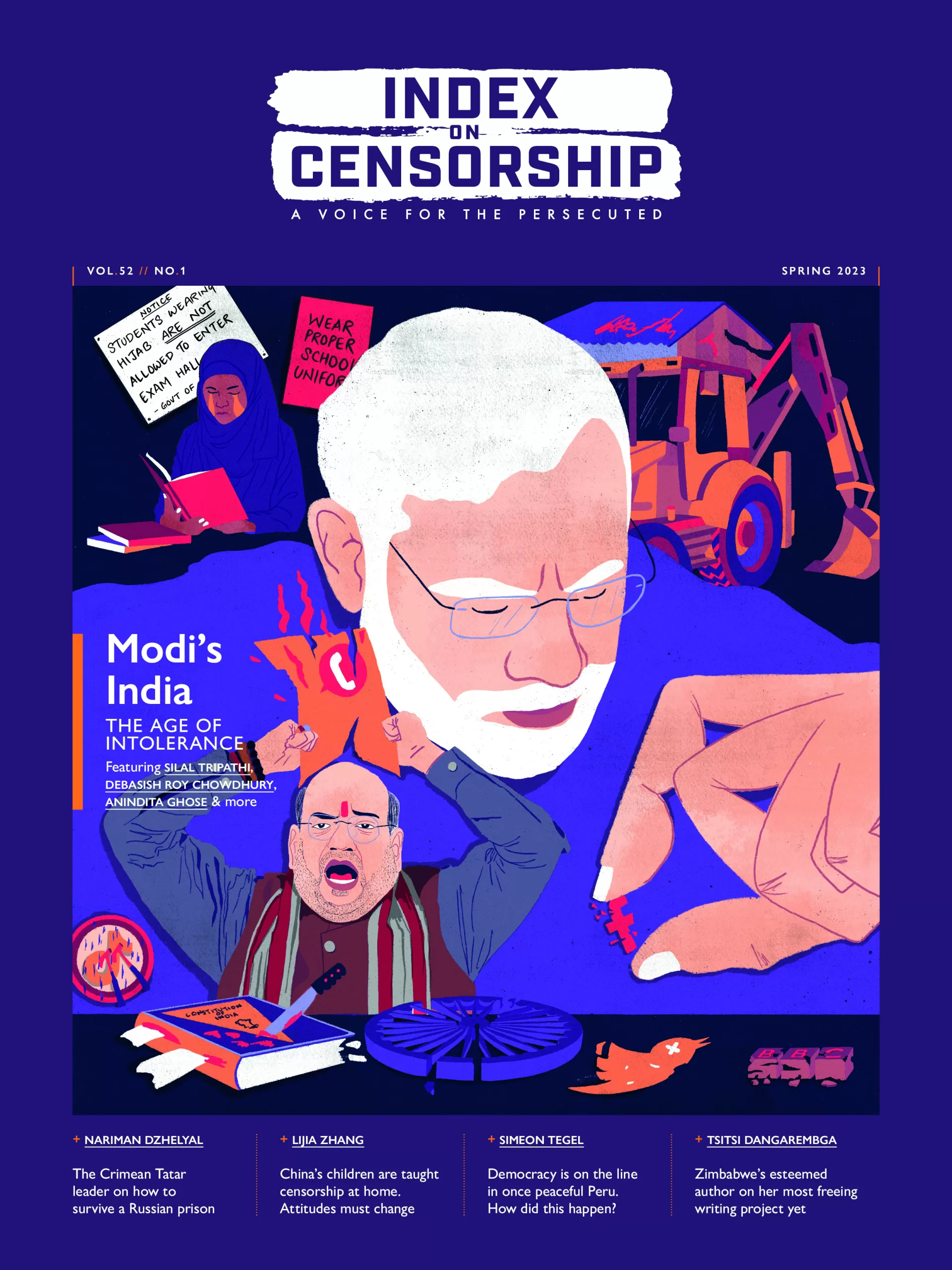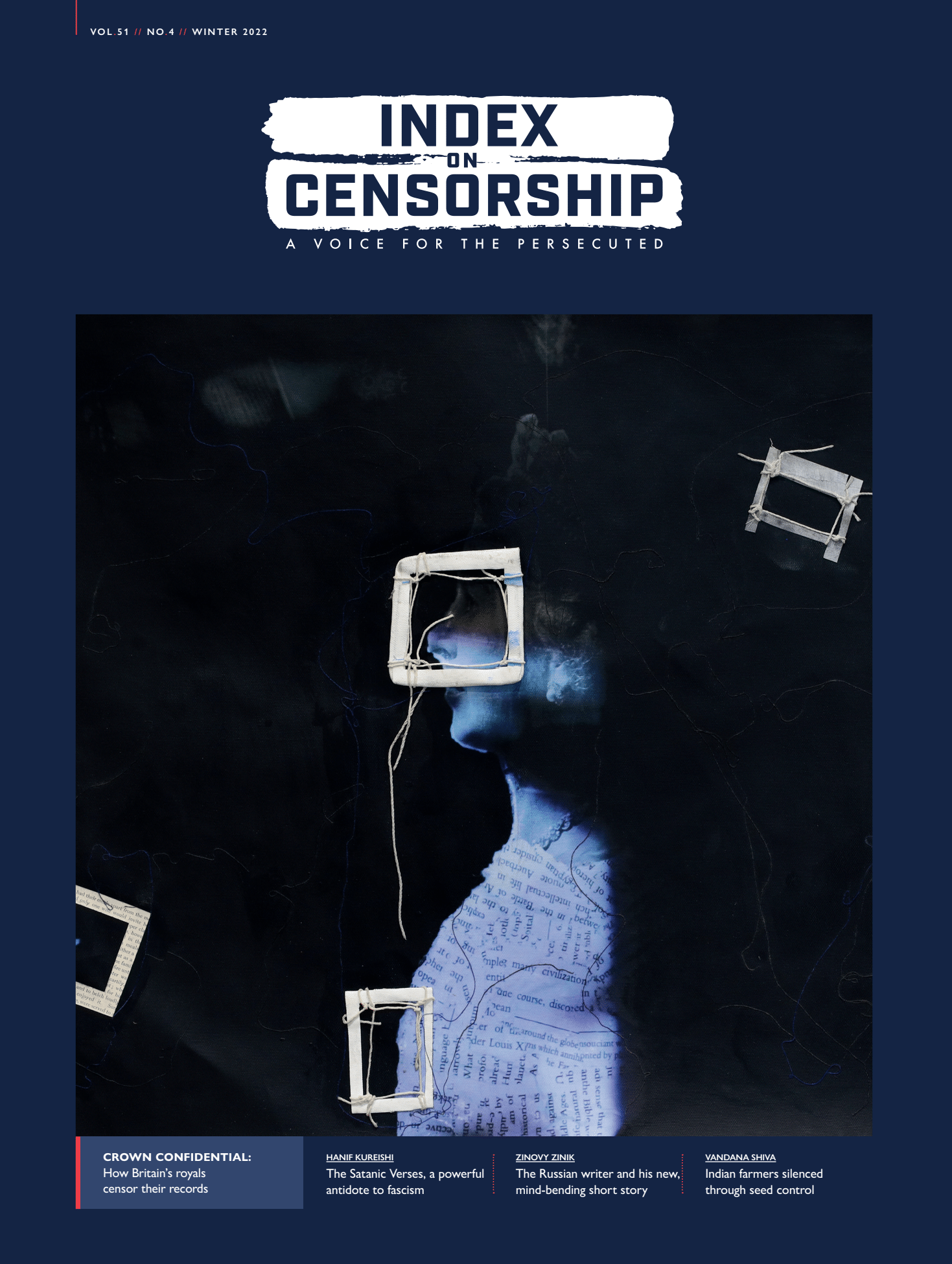[vc_row][vc_column][vc_column_text]

USSR, the August 1980 issue of Index on Censorship magazine.
By Michael Scammell
Ever since Index on Censorship started publication eight years ago (and of course for many decades before that) the Soviet Union has been the world’s leading exponent of techniques of censorship and of total control over the communications media. The importance of its example and the extent of its influence, as one of the world’s two superpowers, is impossible to overestimate. Within its vast empire and its many satellites, from Cuba to Vietnam, its model is applied totally, with only minor regional variations. In many parts of the third world, its attractiveness as a shortcut for those with their hands on the levers of power has proved virtually irresistible.
Throughout these eight years the Soviet government’s control of the media and of its citizens’ access to them has if anything increased, so that it is almost as great now as during Stalin’s rule — the Khrushchev ‘ thaw’ has been completely eradicated. At the same time, a policy of controlled deportation, carefully managed emigration and secret police surveillance has led to a situation where a good half of the Soviet Union’s best writers (including its greatest) have been either driven abroad or forced into official silence, together with more than half of its best artists and many scientists, social scientists, critics, ballet dancers, film makers and other members of the intelligentsia.
[/vc_column_text][/vc_column][/vc_row][vc_row][vc_column width=”1/4″][vc_icon icon_fontawesome=”fa fa-quote-left” color=”black” size=”xl” align=”right”][/vc_column][vc_column width=”3/4″][vc_column_text]
Index has never forgotten that it came into existence as the result of an initiative by Soviet intellectuals (see Pavel Litvinov in Index on Censorship 1/1975), and it has repeatedly exposed the despotic grip in which the Soviet government holds the intellectual and spiritual life of its people.
[/vc_column_text][/vc_column][/vc_row][vc_row][vc_column][vc_column_text]
At the same time we have remained faithful to our progenitors’ request to cast our gaze equally on other parts of the world. Indeed we see it as part of our duty to demonstrate that in matters of censorship and despotism, General Pinochet and Mr Brezhnev, the Shah of Iran and Mr Husdk, have more in common than they have differences. Labels of ‘left’ and ‘right’, ‘socialism’ and ‘capitalism ‘, are not so much meaningless in this context as positively misleading.
Although the Soviet Union has figured prominently in Index, we have never stood back to take a wider look at the comprehensive machinery of repression and control that has been perfected there. Even now, what we are offering is fragmentary and impressionistic – it would take a fat volume to cover the entire subject. But the holding of the Olympic Games in Moscow, and the attention that this will draw to Soviet society and Soviet achievement, offer an opportunity for Index to examine one of the most outstanding of those achievements, although not one that is widely advertised or thoroughly known.
In the following pages a variety of authors examines various aspects of that achievement. Many of them have lived most or all of their lives in the Soviet Union and know the system intimately from inside, others have closely studied the system from outside and describe what they have seen. Some describe how the mechanism works, others what the purpose of the mechanism is or the ways in which the mechanism is evaded and some free discussion achieved.
In all cases, as is customary with Index, readers are left to draw their own conclusions. They are invited to take this information and set it side by side with what they hear from elsewhere, particularly during the Olympic season. Properly understood, it should assist them to a better knowledge of the type of society in which the Olympic torch is being invited to burn in this summer of 1980.
[/vc_column_text][/vc_column][/vc_row][vc_row][vc_column width=”1/3″][vc_single_image image=”94484″ img_size=”full” onclick=”custom_link” link=”https://journals.sagepub.com/doi/pdf/10.1080/03064227808532738″][vc_column_text]
USSR: Will reason triumph?
A letter by Elie Sriegirov to US President Carter
[/vc_column_text][/vc_column][vc_column width=”1/3″][vc_single_image image=”94773″ img_size=”full” onclick=”custom_link” link=”https://journals.sagepub.com/doi/pdf/10.1080/03064227508532389″][vc_column_text]
The Human Rights Movement in the USSR
Pavel Litvinov writes about the complications in society in the USSR
[/vc_column_text][/vc_column][vc_column width=”1/3″][vc_single_image image=”94286″ img_size=”full” onclick=”custom_link” link=”https://journals.sagepub.com/doi/pdf/10.1080/03064228208533458″][vc_column_text]
USSR: Prisoners’ rights denied
Letters to and from prisoners, and visits by relatives, are in effect
being blocked
[/vc_column_text][/vc_column][/vc_row]




